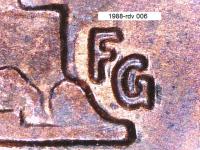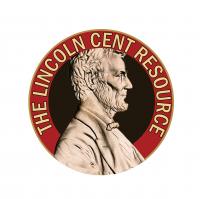Many collectors make the mistake of cleaning a coin when attempting to conserve it properly. The internet is full of bad suggestions and advice. So, not only is the collector who commits the sin to blame, but so are the supposed "experts" offering bad advice. The bottomline, most people should NEVER attempt to conserve their own coins. Leave conservation to the experts like NCS.
Nonetheless, some coins can be helped when great care is used. Also, some coins are not of sufficent value to justify paying NCS to perform a proper conservation. Unfortunately, available methods for safe home conservation are very limited. Using coin cleaners and harsh methods usually produce unacceptable results. To help out people looking to "clean" their coins, I always recommend a very conservative approach with something I call the Solvent Polarity Ladder.There is a huge difference between cleaning and conservation. Cleaning is a very harsh process that is not recommended for ANY coin. It will leave obvious signs behind that any good numismatist can spot. Conservation is a delicate process that is performed with the utmost care. It involves scientific methods that generally do not destroy or alter the coin’s natural patina or leave behind obvious signs of damage. It is important to differentiate between the two and the terms should never used interchangeably. Cleaning = Bad, Conservation = Acceptable. Professional companies who specialize in conservation, such as NCS (Numismatic Conservation Services), are not considered coin cleaners. I don’t think they’d get much business if their company name was Numismatic Cleaning Services! Every collector I’ve met despises cleaned coins.
ALWAYS practice conservation techniques on non-valuable coins BEFORE you ruin your valuable coin! Far too many rare coins have been completely ruined by inexperienced collectors seeking the “quick fix”. Once you’ve crossed the line from conservation to cleaning, there is no turning back! The coin has been ruined and will be worth even less than it was with the problem. You cannot undo something that has already been done. If you’re not 100% confident in what you are doing, don’t do it. Send your coin to conservation professional. Conservation is not a guessing game. It’s a scientific, calculated approach and with lots of experience you will become confident in your conservation skills. Just like anything else in life, it just takes a lot of practice. Once you are confident that you can reasonably predict the outcome on any given coin, then you are ready to conserve.
In chemistry (I am a chemist) we often classify solvents by a property known as polarity. Basically, it's a measure of the charge differential across the solvent molecule. The greater the charge differential, the greater the polarity, i.e. lots of positive charge on one end and lots of negative charge on the other. Another principle in chemistry is "like dissolves like". Therefore, if you have a coin surface residue that matches the polarity of the solvent, chances are high that it will be removed.
This is what I recommend people do. Soak the coin for 10 minutes using each of the following solvents in order. For example, start with water for 10 minutes, remove the coin and let dry. The ladder covers a wide range of polarities.
1) distilled or deionized water
2) acetone (do not use fingernail polish remover)
3) xylene
If the problem has not been resolved after trying each of these solvents, try reversing the order next, i.e. move back to acetone and then water. Sometimes residues are varied, you might have a non-polar residue on top of the polar reside....when that happens, running the reverse ladder can be effective.
If the problem still persists, try increasing the soak times to 24 hours in each solvent. That is about the maximum time I ever recommend soaking a coin because it's possible to produce some adverse effects on the patina with over-soaking. Also, be sure to tightly seal the soaking containers so your solvents do not evaporate!! This is VERY important because you'll just redeposit the dissolved residue back on the coin if the solvent evaporates.
Going beyond the method I've outlined is risky and you'd better be prepared for the negative consequences. It's a common mistake to use harsh solvents recommended on the internet like catsup, lemon juice, baking soda, olive oil, etc. If you do these things, you're going to have a cleaned and damaged coin when you're done.
GOOD LUCK
Welcome guest, is this your first visit? Click the "Create Account" button now to join.
Results 1 to 10 of 25
-
09-25-2012 #1
The First Steps to Proper Coin Conservation
Last edited by jfines69; 01-29-2018 at 03:00 AM. Reason: Added book quote, Corrected spelling
VERDI-CARE™ ALL METAL CONSERVATION FLUID
-
Post Thanks / Like - 16 Thanks, 4 Likes
 Magers, centsible, hasfam, Antiquity, Scott99, badredbrd89, onecent1909, N/A, jcuve, duece2seven, willy13, drex, jallengomez, makecents, RTopal thanked for this post
Magers, centsible, hasfam, Antiquity, Scott99, badredbrd89, onecent1909, N/A, jcuve, duece2seven, willy13, drex, jallengomez, makecents, RTopal thanked for this post
-
09-25-2012 #2
I just left my gratitude back in the cavern.
Just retrieved some gratitude, thank you, again. This is such valuable information, especially coming from a chemist.Last edited by centsible; 09-26-2012 at 07:09 AM. Reason: Add thanks
-
09-26-2012 #3
When first starting out I scoured the internet looking for helpful suggestions to improve the appearance of my circulated coins. This is among the most helpful threads to novice and experienced collectors alike. Thanks Thad.
-
09-26-2012 #4wallendustyGuest
-
09-26-2012 #5ShyCentGuest
Great advice to not only a beginner like me, but to any serious numismatist.
-
09-26-2012 #6
I will try this on some of my coins I have...I have always left them alone and said "I will try latter.." now may be the time...THANK YOU
-
09-26-2012 #7lonegunlawyerGuest
By my forum name, it could be reasonably guessed I am not a chemist, but I have played amateur chemist since Saturday.
Well, I learned quickly (yes, it is permissible to laugh) that acetone and certain plastics/rubbers do not mix well. Acetone dissolves at least some rubbers and plastics. I will use glass in the future.
PS make sure your lid does not have a rubber seal.
-
09-26-2012 #8
Thad, some dealers have suggested using Olive Oil. Just curious on your opinions of that.
-
09-26-2012 #9copperloverGuest
Great advice Thad We shouldn't forget to use the appropriate goggles and mask for acetone and xylene.
Lucien
-
09-26-2012 #10
Brad, I know you want Thad's opinion on this, but I had the same question before. I was told that olive oil is also acidic. Therefore it would not be good for the coin. The person I heard this from said he would only use olive oil on a dug coin that had no hope at all.
On a side note Thad knows I am one of his biggest fan's. I keep a good supply of Verdi-care on hand. Folks this stuff is THE BEST product I have ever used. Hands down."If Free Speech stops when someone gets offended, it is not really Free Speech."
-
Post Thanks / Like - 0 Thanks, 1 Likes
 Petespockets55 liked this post
Petespockets55 liked this post








 Reply With Quote
Reply With Quote





Bookmarks